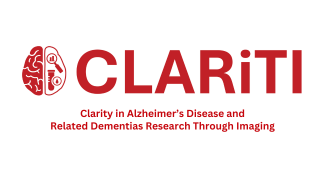
The University of Wisconsin School of Medicine and Public Health (SMPH) has been awarded funding from the National Institutes of Health (NIH) for a nationwide research initiative to investigate the neurobiology of Alzheimer’s disease and related dementias.
The five-year study will provide state-of-the-art imaging and blood-based biomarkers for researchers around the world to study and advance the field of Alzheimer’s and related dementias. The work is also designed to shed light on mixed dementia, where more than one neurological disease is contributing to dementia.
Researchers are beginning to understand that mixed dementia occurs more frequently than had been realized and can cause multiple changes in the brain. For example, an individual may be initially diagnosed with and treated for Alzheimer’s disease, but their brains may also show signs of vascular dementia, which impairs blood flow in the brain. Or, they may also have Lewy body dementia, which involves a brain protein called alpha-synuclein. Without knowing the true cause of a patient's dementia, physicians can't properly treat them, according to Sterling Johnson, study leader and professor of medicine at UW School of Medicine and Public Health.
In the News
"UW-Madison receives historical $150M grant to lead national Alzheimer's study," was published online by WKOW on January 9, 2024.
"Alzheimer's disease study; UW researchers land $150M grant," was published online by Fox6 Milwaukee on January 9, 2024.
"UW to head up $150 million national study on Alzheimer's disease," was published online by the Wisconsin State Journal on January 10, 2024.
"$150 million grant allows UW-Madison to lead nationwide Alzheimer’s study," was published online by WIFR on January 10, 2024.
"NIH awards $150M for nationwide imaging study to better understand ‘mixed dementia’," was published online by HealthImaging on January 10, 2024.
"UW–Madison receives $150 million grant for Alzheimer’s disease study," was published online by Central Wisconsin News on January 10, 2024.
"UW-Madison Gets $150M to Head US Alzheimer's Study," was published online by Mirage.News on January 10, 2024.
"UW-Madison researchers to receive $150 million for Alzheimer's study," was published online by WPR on January 12, 2024.
"Researchers at UW get $150 million grant to lead nationwide study into Alzheimer’s disease," was published online by WMTV on January 13, 2024.
"Alzheimer’s study at UW-Madison may improve odds for dementia treatment," was published online by the Wisconsin State Journal on January 16, 2024.
"UW-Madison receives $150 million to study Alzheimer's disease," was published online by The Cap Times on January 16, 2024.
"UW-Madison researchers lead nationwide Alzheimer's study," was published online by Spectrum News 1 on January 19, 2024.
"National Alzheimer’s research led by UW-Madison boosted by $150M grant," was published online by Wisconsin Public Radio (WPR) on February 1, 2024.
"NIH grant further establishes UW as research, STEM institution," was published online by The Badger Herald on February 7, 2024.
Updated October 28, 2024.



